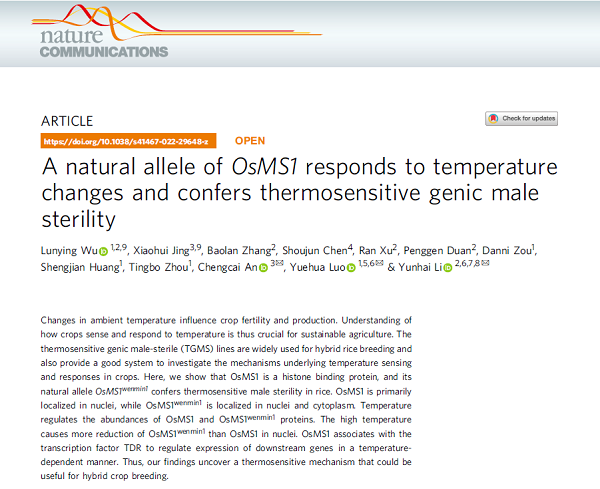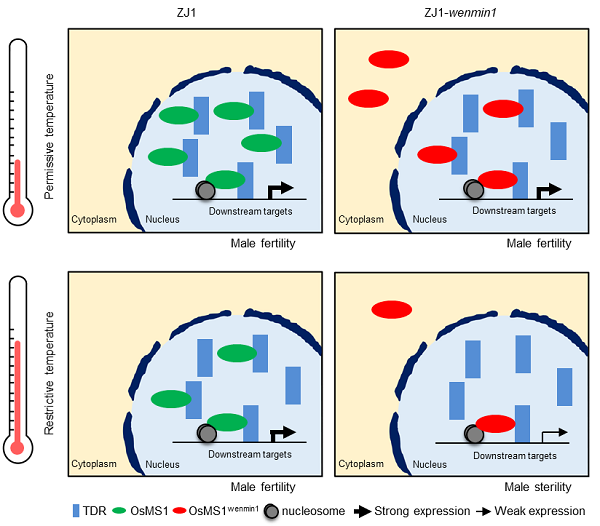HNU contributes to increasing rice production
Updated: 2022-05-11
Hainan University (HNU) doctoral student Wu Lunying has published a research paper with HNU titled "A natural allele of OsMS1 responds to temperature changes and confers thermosensitive genic male sterility" online in Nature Communications.

The research paper titled "A natural allele of OsMS1 responds to temperature changes and confers thermosensitive genic male sterility" is published online in Nature Communications.
Since 2009, the research group led by Professor Luo Yuehua of HNU has been working with Peking University and other academic institutions to conduct research on the molecular mechanism of thermosensitive male sterility.
Wu Lunying finally cloned the wenmin1 gene by using the map-based cloning method after more than 10 years of research.

Cloning and verification of wenmin1 gene function.
Researchers used a yeast system, tobacco transient expression system, and other systems to demonstrate that the protein amount of OsMS1 and OsMS1wenmin1 decreased due to high temperatures, and the protein amount of OsMS1wenmin1 decreased more obviously under high temperatures. It also results in different amounts of OsMS1-TDR and OsMS1wenmin1-TDR complexes at different temperatures, resulting in a lower EAT1 gene expression in the wenmin1 mutant under high temperatures, which eventually led to pollen abortion.

The mode of regulating patterns of pollen development.
This study has great significance in further clarifying the molecular mechanism of temperature-regulated rice fertility conversion, guiding the breeding of two-line hybrid rice, and even creating new thermosensitive sterile lines in other crops.
HNU student Wu Lunying and Peking University student Jing Xiaohui are the co-authors of the paper. The research was supported by funds from the National Natural Science Foundation and the key R&D project of Hainan province.

 More support for college students starting businesses
More support for college students starting businesses  Hainan Univesity 3rd International Young Scholars Forum
Hainan Univesity 3rd International Young Scholars Forum 